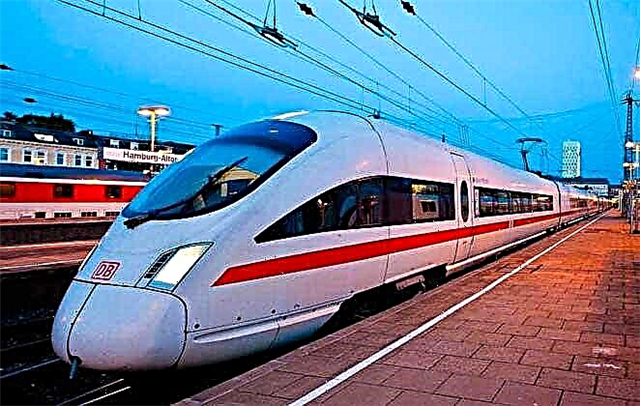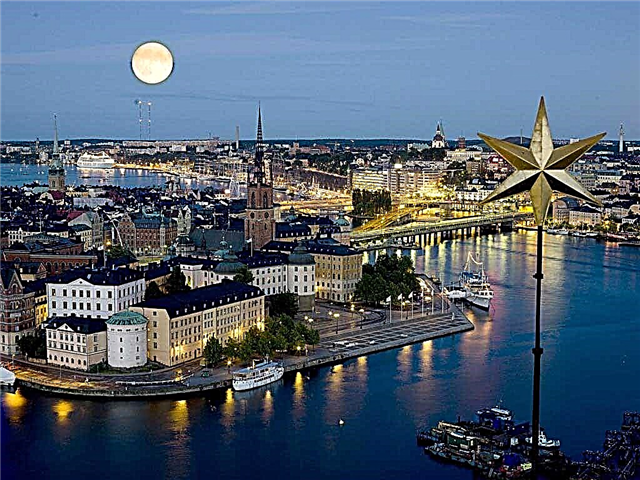Wealthy people and those who intend to build a career based on a demanded profession and work experience aspire to move to the Republic of Austria. The high standard of living in the country, expensive real estate and strict requirements for knowledge of the language reduce the list of those wishing to settle in this territory. For those who decide to take such a step, it will be useful to know how immigration to Austria is going on, what contributes to adaptation and which region to choose for moving.

Grounds for immigration
The Austrians are scrupulous about the observance of the law, and therefore there is practically no chance for those who decided to move to this part of Europe illegally. Local residents, upon detection of a person illegally residing in their territory, will inform the police about it. The offender faces deportation and a ban on entry.
 In order not to be on opposite sides of the law, it is necessary to determine the basis for the move. Here are the main ways to immigrate to Austria:
In order not to be on opposite sides of the law, it is necessary to determine the basis for the move. Here are the main ways to immigrate to Austria:
- Employment. Legalization on this basis is possible if there is an employment contract with a local employer for a period of at least six months. This method is suitable for key specialists, representatives of rare and demanded professions, skilled workers, graduates of Austrian universities, scientists and researchers. The applicant will have to pass special testing and score at least 50-75 points (depending on the category of the employee). As a result of the test, the employee receives an RWR Card (Rot-Weiss-Rot Card). Those who are just going to look for work can apply for RWR + (a type of card), which allows them to stay in the country for six months in order to find work.
- Education. For immigration based on study in Austria, you will need to receive an invitation from the university, which will be a confirmation of enrollment in the ranks of students. A student visa is issued for 12 months with the option of extension.
- Business immigration. To do this, it is necessary to show the presence of the authorized capital for opening a company in the amount of 35 thousand euros. The rules allow depositing 50% of this amount to the Austrian bank account for the beginning if the candidate does not have enough money. A residence permit is issued for 2 years with the right of extension. After 5 years, a businessman can receive permanent residence, and after another 5 years - citizenship. Together with the main migrant, his family can also stay in Austria.
- Reuniting with relatives. Moving to Austria for permanent residence is possible for relatives of residents and citizens of the state. To do this, the host must prove their solvency and the availability of housing. The migrant must provide proof of kinship with the Austrian, confirm the level of German language proficiency at the A1 level.
- Getting married. A foreign citizen can also enter into an alliance with an Austrian with a tourist visa. But it will be possible to apply for a residence permit only when the joint residence in marriage is at least a year, provided that the spouse has been living in the country for more than three years.
- Immigration for wealthy individuals. This includes those who live on income from deposits, as well as retirees and people who have a certain capital on the account. The exact amount has not been established. It is calculated based on the number of family members, and is at least 86 thousand euros for the main applicant.
- Immigration for Investors. The main requirement is to invest at least 2 million euros in the Austrian economy. There are no language proficiency requirements. Together with the investor, his family can also migrate.
- Refugees. Only those candidates who can prove that returning to their home state threatens their lives will be able to receive the status.
Emigration stages
The process of emigration can be started by persons who receive a category D immigrant visa. This is the only visa permit that gives the right to further legalization. The step-by-step process looks like this:
- Emigration to Austria from Russia, Ukraine or another CIS country begins with obtaining a residence permit. There are several types of it:
- Temporary (Aufenthaltsbewilligung) - issued to journalists, students, researchers, professors, businessmen who come for a business trip, to participants in the Au-Pair program.
- Permanent (Niederlassungsbewilligung) - provided for migrant workers, as well as those who migrate on the basis of family reunification and marriage.
To obtain a residence permit in 2021, you need to meet the following requirements:
- Show that the account has an amount of 933 euros per month for the main applicant or 1,399 euros for a couple and 144 euros for each child.
- Confirm the availability of rented or own housing in the country.
- Not have violations of the law, including labor and migration.
- Confirm the knowledge of German at the A1 level (for some categories of migrants, this requirement has been abolished, for example, for businessmen).
It should be remembered that the issuance of residence permits is carried out within the framework of quotas. Their number for each region is set individually.
2. Registration of permanent residence. You can start the procedure for requesting permanent status only if you have lived in the country on the basis of a residence permit for 5 years and stayed in Austrian territory for at least 183 days a year. Requirements for candidates are the same as for temporary residents. The only difference is that you have to show your knowledge of the German language at the B1 level. Only persons under 14 years of age and those who cannot pass it due to speech and hearing impairments are exempted from the exam.
3. Citizenship. To become a full member of society, you need to live in the country for another 5 years on the basis of permanent residence. For some categories of migrants, the total period of residence in Austria from the moment of entry may vary:
- for investors - 1.5 years;
- EU citizens - 4 years;
- refugees, spouses of Austrian citizens, skilled workers - 6 years;
- other persons - 10 years.
A candidate for an Austrian passport must have an impeccable reputation, be financially secure, have a place of residence, speak German, renounce previous citizenship.
What documents will be needed
 The first thing you need to move to Austria is to prepare a package of documents. At the stage of obtaining a residence permit, you will need:
The first thing you need to move to Austria is to prepare a package of documents. At the stage of obtaining a residence permit, you will need:
- Statement.
- Foreign passport and its copy.
- Birth certificate.
- The photo.
- Proof of housing availability (lease or title deed).
- Insurance.
- Proof of funds in a bank account.
- Certificates of marriage, birth of children, change of personal data, divorce, etc.
- Certificate of no criminal record.
- Confirmation of the basis for obtaining a residence permit: an employment contract, an invitation from a university, etc., depending on the basis.
When applying for permanent residence, you will have to attach a valid residence permit to the package of papers.
The package of documents for citizenship must be supplemented by a resident card (permanent residence), an extract from the tax authority on the payment of taxes, a certificate of salary or other income, a documented renunciation of past citizenship. All papers at all stages must be translated into German and notarized.
Cost and terms of consideration of applications
Financial expenses await candidates for emigration already at the stage of visa processing. The cost of a national visa is 100 euros. This is only a consular fee, excluding the cost of photocopies, shipping and notary services.
Further budget will depend on which document is requested:
- Residence permit and permanent residence - 80 euros registration + service fee 100 euros (for adults), 50 euros registration + 20 euros service fee (for children).
- Citizenship - for adults - 600-900 euros, for a married couple - 900-1200, for children - 80 euros.
The processing time is also due to the stage:
- You can get a visa in 4-6 weeks.
- It can take up to six months to consider a request for a residence permit and permanent residence.
- An application for citizenship is considered for at least a year.
Why can they refuse
Before proceeding with the legalization procedure, it will be useful to read reviews on the forums from those who have already gone through the process and can give good advice. The main task of the migrant is to do everything so that the decision of the Austrian Migration Service, where the documents will be submitted, is positive at all stages.
The reasons for refusal can be very different:
- incorrectly completed application;
- incomplete package of documents;
- counterfeit papers;
- low income;
- long absence of the applicant in the country;
- providing false information;
- violation of laws and conduct of activities that threaten the safety of citizens of the state and its integrity.
If the candidate is rejected, he can correct the mistakes and apply again. You can try to change the basis, but first you need to make sure that you have enough documents to confirm it.
If this path does not help, you can file an appeal, documenting your case. Service charges and fees are non-refundable if a negative decision is made.
Choosing a city
 In addition to figuring out how to go to live in Austria, it is important to choose the right region that meets all the needs and expectations of the migrant. The reviews of those who have already lived in the country for some time, and a small overview of the cities will help in this:
In addition to figuring out how to go to live in Austria, it is important to choose the right region that meets all the needs and expectations of the migrant. The reviews of those who have already lived in the country for some time, and a small overview of the cities will help in this:
- Vienna - In 2021, the Austrian capital was ranked number one in the Mercer’s Quality of Living Ranking for the 10th time in a row. This city is chosen by wealthy people to invest in real estate, the prices of which are higher here than in other regions of the country. Vienna is also suitable for education. Today 13 out of 24 universities of the country work here.
- Salzburg - located in the west of the state, is the 4th largest city in Austria. It has well-established transport links with other major cities, an international airport. A large number of industrial enterprises in the field of automation and high technologies are located here. Those looking for work in the field of multimedia and communications can also settle here. Salzburg has 4 universities: medical, polytechnic, music and the University of Paris Lodron, which is famous for its theological faculty.
- Linz is the capital of the state of Upper Austria (northwestern part of the state). The third largest city in the country. It has a mild climate (summer temperature does not exceed 21 degrees above zero). The chemical, metallurgical, petrochemical, food and electrical industries are well developed here.
- Graz - located in the southeast, it is the second largest settlement in Austria. Key areas in the economy: brewing, textile, food industries. It is considered a city of students due to the four universities located here.
Living in Austrian cities is more expensive. Therefore, many choose the nearby villages, which are distinguished by picturesque landscapes, comfort and are connected by transport links with all major cities.
How to speed up adaptation
Those moving to another state should always be ready for new living conditions, completely different realities and the course of life in general. Here are just a few tips that experienced migrants share:
- Learn the language. You need to deal with this issue at home. Austrians are extremely sensitive about the knowledge of the German language. Moreover, its level will have to be confirmed at all stages of emigration.
- Don't break the law. Austrians are an extremely law-abiding nation. That is why their state is considered one of the safest in Europe. Calling the police is a common thing here. If you decide, for example, to listen to music loudly after 8 pm, be prepared to meet with the police.
- Stock up on warm clothing, which in some regions will require you even in summer. The weather here can change several times a day.
- Stores in Austria close at 18-20.00. This is due to labor laws. Everything is closed on Sunday, there is no public transport in small towns.
- Catering establishments operate very efficiently in the country. If you decide to open your own business, for example, a fast food or cafe, it will be extremely difficult to obtain a license to operate such an establishment.
- Public transport from 2021 onwards cannot be paid for by the driver. You need to buy a ticket in advance at a stop in a special terminal. If there are many trips ahead, it will be more profitable to purchase a day ticket.
Outcomes
Whether it is worth moving to Austria, you need to decide at the preliminary stage, while the money and time have not yet been spent on the preparation of the necessary documents. A summary table of the pros and cons of emigration will help in this matter:
| Advantages | disadvantages |
|---|---|
| - Austria is one of the most developed countries in Europe with a high standard of living and a stable economy. - Compared to other European countries, there is a low unemployment rate of 4.8%. - Mild climate - the country is located in the central part of Europe. Only some mountainous regions here are characterized by frosty winters and sultry summers. In the rest regions have mild summers and the same moderately warm winters. - Beautiful nature, architecture - part of the Alps, a large number of lakes, thermal springs are located on the territory of Austria. - High-quality education - diplomas of Austrian universities are highly rated in the world. - A high level of development of medicine, a large number of health resorts, rehabilitation centers, ski resorts. - Quality food - the Austrian authorities pay special attention to this issue. - Low crime rate. - Possibility of visa-free visits to most of the countries of the world. - High level of social protection of citizens. - High level of salaries - the average level reaches 3,000 euros per month | - High taxes (for some payers the income tax rate is 50%). - Difficulties in finding a job, caused by the fact that Austrians prefer to hire locals or EU citizens. - High housing prices. - Strict requirements for the level of language proficiency already at the stage of requesting a visa permit. - Not too friendly attitude towards migrants from the local population. - High food prices and other running costs |











